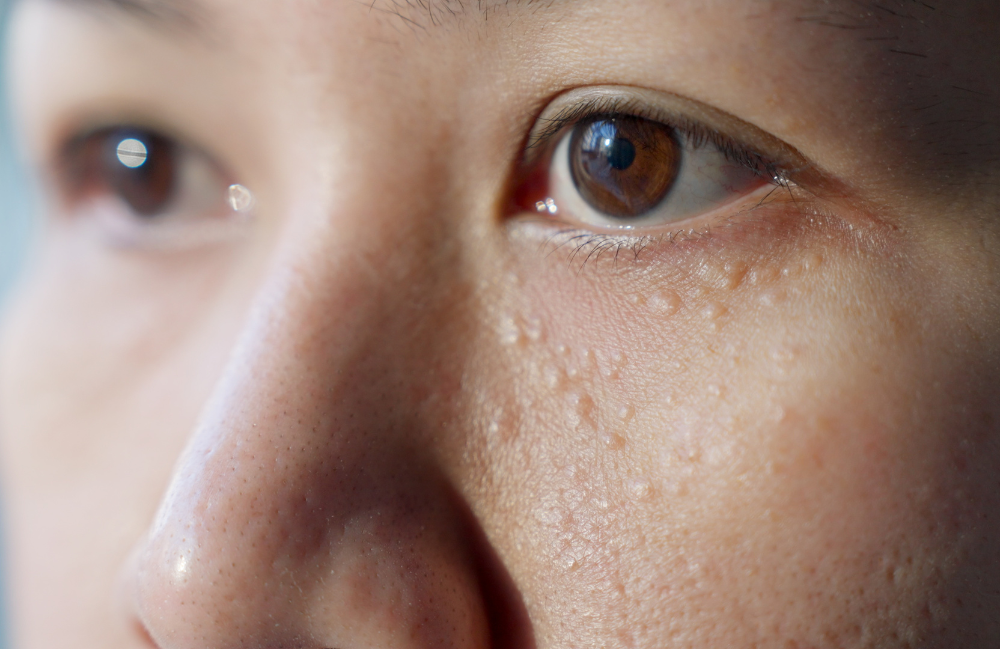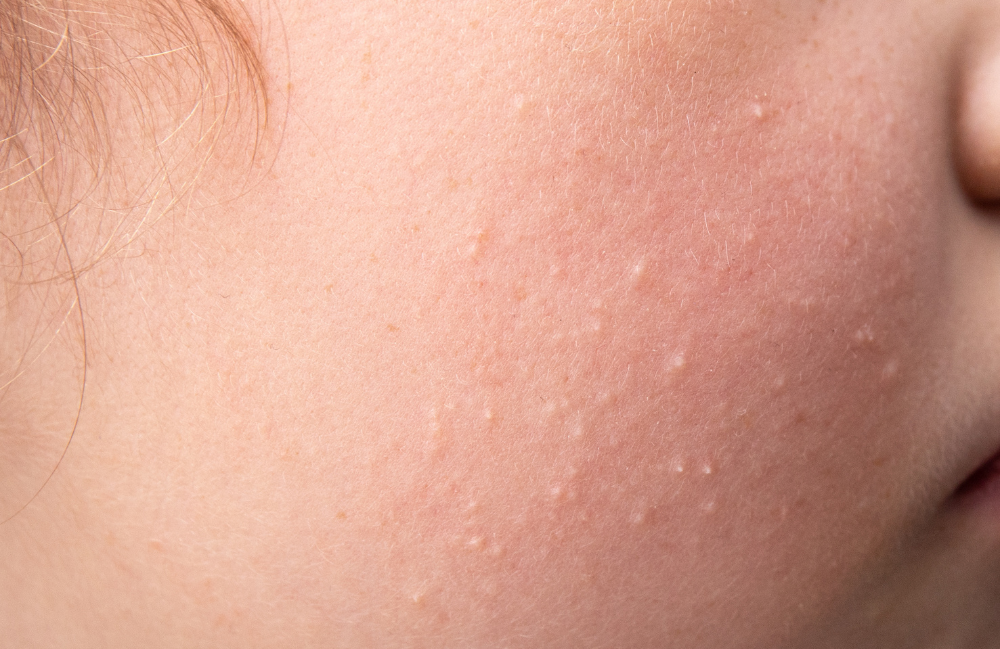
What is Milia?
Milia are tiny, hard cysts that appear on the skin’s surface due to trapped dead skin cells. Unlike pimples, which form when pores are clogged with oil and bacteria, milia develop under the skin and are more common in newborns but can affect individuals of any age. There are several types of milia, including primary milia, which is common in both infants and adults, and secondary milia, which can occur after skin trauma or sun damage.
What Are the Causes of Milia?
Milia are caused by dead skin cells getting trapped beneath the skin’s surface instead of naturally shedding. This can occur due to various factors:
- Skin damage. Burns, rashes, or long-term sun exposure can lead to the formation of milia.
- Heavy creams or ointments. Prolonged use of rich creams or topical steroids can contribute to the development of these cysts.
- Age. As the skin ages, its natural exfoliation process slows down, increasing the likelihood of dead skin cells becoming trapped.
- Genetics. Some individuals may be more predisposed to developing milia due to their skin type.
What Are the Symptoms of Milia?
The most notable symptom of milia is the appearance of small, white or yellowish bumps, often around the eyes, cheeks, or forehead. These bumps are usually painless and firm to the touch. They don’t itch or cause discomfort, making them purely a cosmetic concern for most people.
What Are the Possible Treatments?
Although milia often resolve on their own over time, some people prefer to have them removed, especially if they are persistent or affect their appearance. At Metropolis Dermatology, we offer several treatment options for milia removal, including:
- Cryotherapy. A freezing technique used to remove the cysts.
- Topical Retinoids. Creams that promote cell turnover and help clear the skin.
- Extraction. A dermatologist can remove the milia by making a small incision and carefully extracting the cyst.

FAQs
Are milia harmful?
No, milia are harmless and do not pose any health risks. They are mainly a cosmetic concern.
Can I remove milia at home?
It is not recommended to try removing milia at home, as this can lead to skin damage or scarring.
How long do milia last?
Milia can last for a few weeks to months. In infants, they usually disappear on their own within a few weeks.
Can milia be prevented?
Regular exfoliation and sun protection can reduce the risk of developing milia, especially secondary milia caused by skin damage.
What is the recovery time after milia removal?
Recovery time is typically short, with most patients resuming normal activities immediately after treatment.
Hear from
Real Patients

Schedule Your Consultation Today
If you are dealing with stubborn milia, our expert dermatologists at Metropolis Dermatology in San Jose, CA, can help. Contact us today to schedule a consultation and explore your options for clear, healthy skin!
